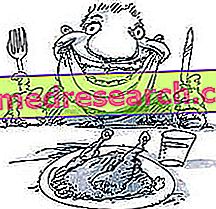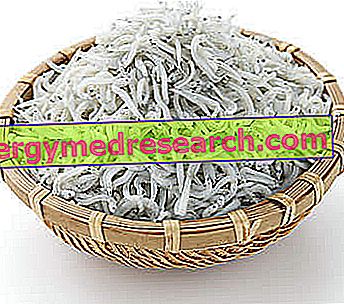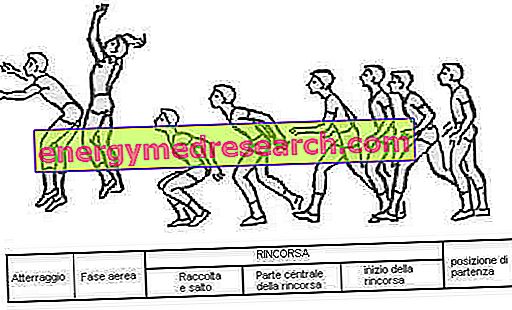What is the Depression
Diet and our attitude towards food influence and are influenced by mood.
Depression is a disorder in which the mood loses its physiological flexibility, is reduced and is no longer influenced by positive situations.

Consequences
Low- calorie diets are an important risk factor for the onset of depression, especially following the intake of anorectic drugs; this has negative effects on emotions and behavior. Some of these pharmacological principles also induce a sense of euphoria that gives way to a more or less severe depression at the interruption of therapy.
Other drugs associated with slimming diets favor the appearance of moodiness, fatigue and sedation; the combination of these molecules with antidepressants is absolutely contraindicated. Furthermore, the diet is often interpreted and performed in an irrational way, without a specialist check, negatively affecting the subject's nutritional status. In both those predisposed and those not predisposed, the inadequate hypocaloric diet can favor depression.
Effects of food on mood
Alcohol and Coffee
The habit of putting coffee and alcohol in the diet can negatively affect recovery from depression; the depressed tend to abuse certain substances in the (vain) attempt to alleviate their suffering.
Coffee has a psychostimulant action and its repercussions on the nervous system (and therefore on depression) are dependent doses. In the majority of depressed people, the worst time of day is morning awakening; therefore, coffee intake according to one's habits (but avoiding abuse), as well as normal, could also be useful; consumption in the evening must necessarily be avoided.
The diet should not contain alcoholic beverages, as the disinhibiting action of this nerve worsens the emotional state of the person suffering from depression. Furthermore, alcohol interferes with antidepressant therapies, worsening the undesirable effects: weakness, drowsiness, arterial hypotension and various types of physical disorders. This reduces the effectiveness of the treatment.
Histamine
Many other dietary molecules affect the brain and depression. It is the case of histamine, an exciting neurotransmitter that, if introduced in excess, can trigger severe headaches and anxiety, thereby worsening the emotional state of the depressed (sgombroid syndrome). In food, histamine is present above all in fish products such as oily fish and represents an indication of mal-conservation and bacterial contamination.
Glutamate
Even the high intake of glutamate - another amino acid that acts as an exciting neurotransmitter, as well as a food additive used as a flavor enhancer - can cause alteration and worsening of mood, favoring neurovegetative crises with profuse sweating, nausea, vomiting, headache and great tiredness (Chinese restaurant syndrome).
tyramine
The tyramine is an amine derived from the amino acid tyrosine and, besides being also a marker of bacterial contamination, and therefore of bad conservation, it is present in good quantities in: cheeses, processed meats, soy sauce, red wine, fish, chocolate, bananas and alcoholic beverages. It stimulates excessive discharges of norepinephrine, facilitating throbbing headaches, tachycardia and face heat. Both the side effects of glutamate excess and those related to excess tyramine in the diet can significantly worsen the symptomatic picture of depression.
Sugars and Carbohydrates
Turning your attention to the macronutrients that make up the diet against depression, it is essential that the intake of carbohydrates does not prescind from the percentages recommended by a good and healthy diet; a chronic defect in sugar intake (associated with a significant increase in fat) could initially cause a state of hypoglycemia with related symptoms and side effects.
Only after ketoacidosis induced by hypoglycemia, the brain can become addicted to a NOT physiological condition and enjoy a state of almost euphoric well-being induced by blood intoxication; in view of the known destructive consequences of ketone bodies on the other organs of the body and of the typical swinging mood, the ketogenic diet is not considered a valid therapy for depression. On the other hand, excess carbohydrates (> 70%) to the detriment of proteins and fats also cause undesirable side effects; the most relevant are: decreased glucose utilization by brain tissue, confusion, slowing down and lethargy.
Omega 3
Not only the quantity but also the quality of nutrients in the diet can have a positive or negative impact on the symptoms of depression. In fact, in the medium and long term, the fats contained in the diet significantly affect the composition of the lipids contained in the neural membrane of the brain. A good supply of omega 3 essential fatty acids guarantees the integrity and optimization of the mileinic coatings of neurons (constituting the cerebral white matter) to the benefit of nerve impulses; on the contrary, a diet rich in cholesterol, with an excessive intake of arachidonic acid and an inadequate ratio of omega3 / omega6 seems to have a negative effect on learning, memory and, due to the deficit in nerve transmission, on mood ( already altered in depression). Obviously, a diet rich in omega 3 is distinguished by the specularly opposite therapeutic effect.
Physical activity
Although it has little to do with the diet in depression, let us remember that physical activity is the major adjunct to drug therapies for combating the endocrine disorders typical of this disease; it induces a noradrenergic stimulus and an endorphinic release such as to favor the improvement (more or less important depending on the severity of the disease) of the symptoms of depression.
Tips
In summary, the diet against depression must be:
- Possibly normocaloric or in any case not very aggressive and monitored by a specialist
- Free of anorectic drugs
- Moderate in caffeine
- Alcohol-free
- Very poor histamine, glutamine and tyramine
- Correctly divided into macronutrients
- Rich in omega3 essential fatty acids and low in cholesterol and saturated fatty acids
- Assisted with regular physical activity
Bibbliografia:
- Depression, anxiety and panic: questions and answers - Association for Research on Depression. Salvatore Di Salvo - Information campaign on depression and anxiety; 2005
- Uneasy mind. Stress, anxiety and depression - Francesco Bottaccioli - New techniques - 36:44



